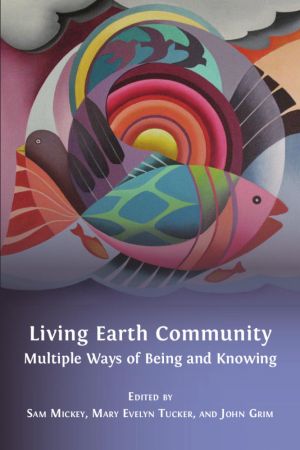
Living Earth Community: Multiple Ways of Being and Knowing is a celebration of the diversity of ways in which humans can relate to the world around them, and an invitation to its readers to partake in planetary coexistence. Innovative, informative, and highly accessible, this interdisciplinary anthology of essays brings together scholars, writers a...

From paintings and food to illness and icebergs, science is happening everywhere. Rather than follow the path of a syllabus or textbook, Andrew Morris takes examples from the science we see every day and uses them as entry points to explain a number of fundamental scientific concepts - from understanding colour to the nature of hormones - in ways t...

This open proceedings presents a good overview of the current research landscape of industrial robots.The objective of MHI Colloquium is the successful networking at both academic and management level. Thereby, the colloquium focuses an academic exchange at a high level in order to distribute the obtained research results, to determine synergy effe...
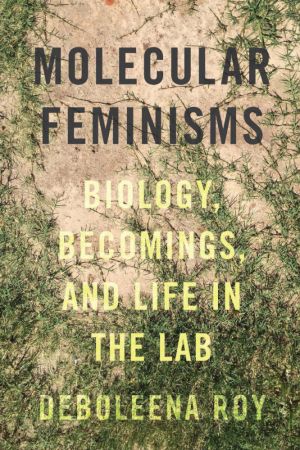
In Molecular Feminisms, Roy investigates science as feminism at the lab bench, engaging in an interdisciplinary conversation between molecular biology, Deleuzian philosophies, posthumanism, and postcolonial and decolonial studies. She brings insights from feminist theory together with lessons learned from bacteria, subcloning, and synthetic biology...
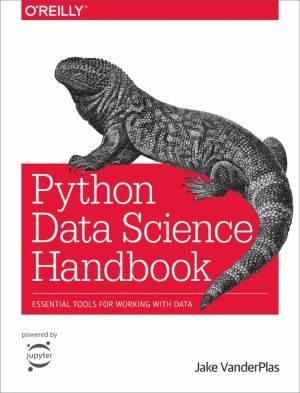
For many researchers, Python is a first-class tool mainly because of its libraries for storing, manipulating, and gaining insight from data. Several resources exist for individual pieces of this data science stack, but only with the Python Data Science Handbook do you get them all - IPython, NumPy, Pandas, Matplotlib, Scikit-Learn, and other relate...
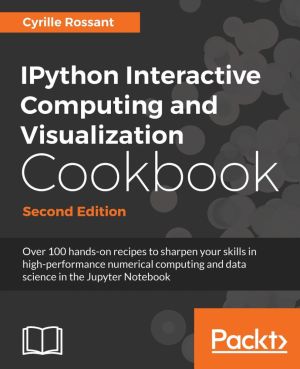
Python is one of the leading open source platforms for data science and numerical computing. IPython and the associated Jupyter Notebook offer efficient interfaces to Python for data analysis and interactive visualization, and they constitute an ideal gateway to the platform.
IPython Interactive Computing and Visualization Cookbook, 2nd Edition ...

This open book is about exploring interesting borderline cases of art. It discusses the cases of gustatory and olfactory artworks (focusing on food), proprioceptive artworks (dance, martial arts, and rock climbing qua proprioceptive experiences), intellectual artworks (philosophical and scientific theories), as well as the vague limits between pain...

This open access book explores the amazing similarity between paths taken by people and many other things in life, and its impact on the way we live, teach and learn.
Offering insights into the new scientific field of paths as part of the science of networks, it entertainingly describes the universal nature of paths in large networked structures. ...

This open book explores how biometric data is increasingly flowing across borders in order to limit, control and contain the mobility of selected people, namely criminalized populations. It introduces the concept of bio-bordering, using it to capture reverse patterns of bordering and ordering practices linked to transnational biometric data exchang...

The essays in this open access volume identify the key ingredients for success in capitalizing on public investments in scientific projects and the development of large-scale research infrastructures.Investment in science – whether in education and training or through public funding for developing new research tools and technologies – is a cruc...
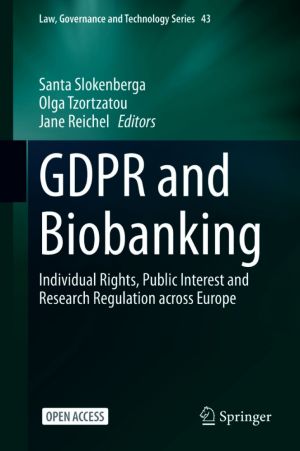
This open book focuses on the discrepancies in biobank research regulations that are among the most significant hurdles to effective research collaboration. The General Data Protection Regulation (GDPR) has established stringent requirements for the processing of health and genetic data, while simultaneously allowing considerable multi-level except...

This open book examines the role of pilot and demonstration projects as crucial devices for conducting innovation in the context of the energy transition. Bridging literature from sustainability transitions and Science and Technology Studies (STS), it argues that such projects play a crucial role, not only in shaping future energy and mobility syst...

This open book aims to clarify the term „evidence-based medicine" (EBM) from a philosophy of science perspective. The author, Marie-Caroline Schulte discusses the importance of evi-dence in medical research and practice with a focus on the ethical and methodological prob-lems of EBM. The claims that EBM can herald a new theory of epistemolog...
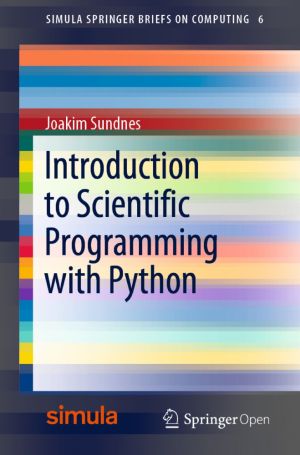
This open book offers an initial introduction to programming for scientific and computational applications using the Python programming language. The presentation style is compact and example-based, making it suitable for students and researchers with little or no prior experience in programming.
The book uses relevant examples from mathematics a...

This open book on the history of the National Radio Astronomy Observatory covers the scientific discoveries and technical innovations of late 20th century radio astronomy with particular attention to the people and institutions involved. The authors have made extensive use of the NRAO Archives, which contain an unparalleled collection of documents ...
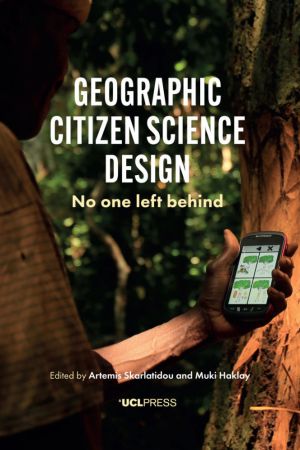
Little did Isaac Newton, Charles Darwin and other 'gentlemen scientists' know, when they were making their scientific discoveries, that some centuries later they would inspire a new field of scientific practice and innovation, called citizen science. The current growth and availability of citizen science projects and relevant applications...
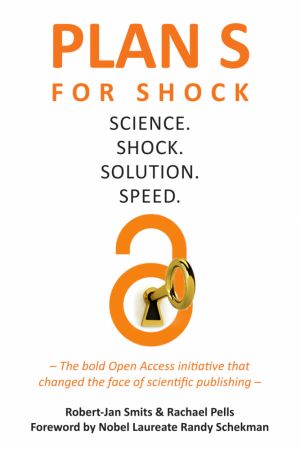
In a world where information has never been so accessible, and answers are available at the touch of a fingertip, we are hungrier for the facts than ever before - something the Covid-19 crisis has brought to light. And yet, paywalls put in place by multi-billion dollar publishing houses are still preventing millions from accessing quality, scientif...
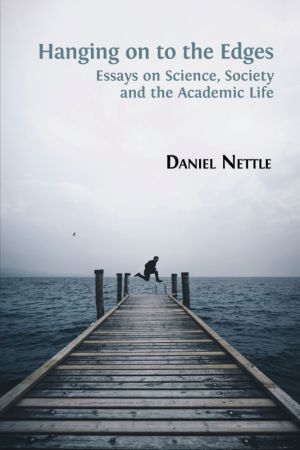
What does it mean to be a scientist working today; specifically, a scientist whose subject matter is human life? Scientists often overstate their claim to certainty, sorting the world into categorical distinctions that obstruct rather than clarify its complexities. In this book Daniel Nettle urges the reader to unpick such distinctions - biological...

In this rigorous and necessary book, Kristien Hens brings together bioethics and the philosophy of biology to argue that it is ethically necessary for scientific research to include a place for the philosopher. As well as ethical, their role is conceptual: they can improve the quality and coherence of scientific research by ensuring that particular...

This book is an introduction to the language of systems biology, which is spoken among many disciplines, from biology to engineering. Authors Thomas Sauter and Marco Albrecht draw on a multidisciplinary background and evidence-based learning to facilitate the understanding of biochemical networks, metabolic modeling and system dynamics.
Their pe...

Policy-making to address grand challenges faces greater complexity than any previous project of modernization. Future scenarios are haunted by uncertainty and there is real ambivalence as to the values that policy should strive for. In this situation decision-makers look to research and innovation to provide answers and solutions. But neither can t...

In this edited open access book leading scholars from different disciplinary backgrounds wrestle with social science integration opportunities and challenges. This book explores the growing concern of how best to achieve effective integration of the social science disciplines as a means for furthering natural resource social science and environment...
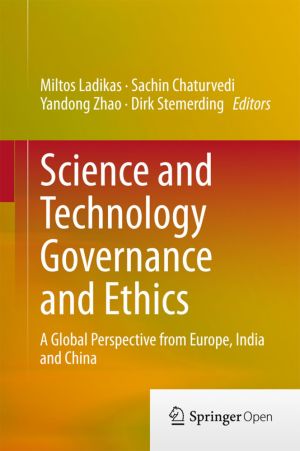
This book analyzes the possibilities for effective global governance of science in Europe, India and China. Authors from the three regions join forces to explore how ethical concerns over new technologies can be incorporated into global science and technology policies. The first chapter introduces the topic, offering a global perspective on embeddi...
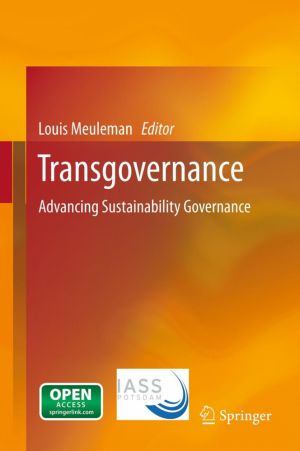
'Transgovernance: Advancing Sustainability Governance' analyses what implications recent and ongoing changes in the relations between politics, science and media – together characterized as the emergence of a knowledge democracy – may have for governance for sustainable development, on global and other levels of societal decision mak...

This interdisciplinary book contains 22 essays and interventions on rest and restlessness, silence and noise, relaxation and work. It draws together approaches from artists, literary scholars, psychologists, activists, historians, geographers and sociologists who challenge assumptions about how rest operates across mind, bodies, and practices. Rest...

This book is open access, which means that you have free and unlimited access.This book analyses and discusses the recent developments for assessing research quality in the humanities and related fields in the social sciences. Research assessments in the humanities are highly controversial and the evaluation of humanities research is delicate. Whi...
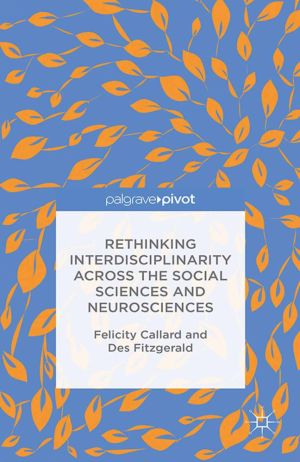
This book offers a provocative account of interdisciplinary research across the neurosciences, social sciences and humanities. Rooting itself in the authors' own experiences, the book establishes a radical agenda for collaboration across these disciplines. This book is open access under a CC-BY license....

This book uses meta-analysis to synthesize research on scaffolding and scaffolding-related interventions in STEM (science, technology, engineering, and mathematics) education. Specifically, the volume examines the extent to which study quality, assessment type, and scaffolding characteristics (strategy, intended outcome, fading schedule, scaffoldin...

Higher education in Europe and beyond faces a series of major challenges. The economic crisis has accelerated expectations of an increased role in addressing economic and societal challenges while, at the same time, putting pressure on available finances. Broader trends such as shifting student demographics and expectations, globalisation and mobil...

Given the manifold challenges of financial sectors in developing and transition countries, one might be tempted to believe that embarking on "green" finance is not a priority for financial systems development. However, there are a number of arguments against this view. Environmental finance, particularly energy efficiency and renewable en...

Arising from a scientific conference marking the 100th anniversary of her birth, this book honors the life and work of the social scientist and diplomat Ester Boserup, who blazed new trails in her interdisciplinary approach to development and sustainability. The contents are organized in three sections reflecting important focal points of Boserup&...

This book explores the social history of the anti-vivisection movement in Britain from its nineteenth-century beginnings until the 1960s. It discusses the ethical principles that inspired the movement and the socio-political background that explains its rise and fall. Opposition to vivisection began when medical practitioners complained it was cont...
